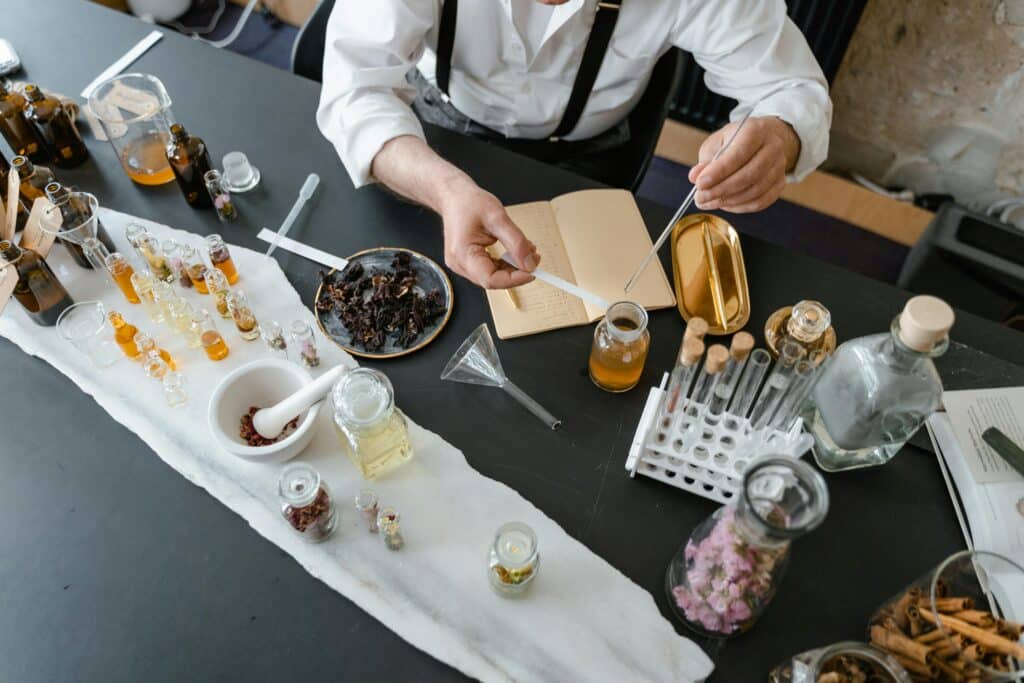Walk into almost any household store and you’ll find rows of products claiming to harness the power of essential oils. From lemon-scented sprays to eucalyptus-infused floor cleaners, these natural extracts are marketed as effective, eco-friendly alternatives to chemical-heavy products. But beyond the appealing fragrances, do essential oils genuinely deliver when it comes to cleaning?
The Science Behind Essential Oils
Essential oils are concentrated plant extracts, prized for their strong aromas and, in some cases, antimicrobial properties. Oils such as tea tree, eucalyptus, lemon, and lavender have been studied for their ability to inhibit the growth of bacteria and fungi. While their cleaning power shouldn’t be overstated, research does suggest that certain oils can play a role in sanitising surfaces and freshening up the air.
The caveat is that essential oils aren’t a complete substitute for disinfectants when dealing with serious pathogens. They may help reduce odours and surface-level bacteria, but they don’t guarantee the same germ-killing effectiveness as products designed specifically for sterilisation.
Popular Oils and Their Claimed Benefits
- Tea Tree Oil: Known for its antifungal and antibacterial qualities, often added to DIY sprays for bathrooms.
- Lemon Oil: Provides a bright, clean scent and some degreasing ability.
- Lavender Oil: Used more for its calming fragrance, with modest antibacterial potential.
- Eucalyptus Oil: Common in Australian households, especially for freshening fabrics and discouraging dust mites.
- Peppermint Oil: Sometimes used as a natural deterrent for ants and spiders.
While these oils may not replace traditional cleaners, they can complement them by boosting freshness and providing mild cleaning support.
Where Essential Oils Shine
Essential oils are particularly effective in situations where fragrance and light cleaning are the main goals. A few drops in a spray bottle with water and vinegar can create a natural surface spray for countertops. Adding oils to a carpet powder mix (like baking soda) helps neutralise odours while leaving behind a pleasant scent. They can also be diffused to improve the atmosphere of a room, creating the perception of cleanliness alongside actual tidying.
DIY Cleaning Recipes with Essential Oils
All-Purpose Spray
- 1 cup white vinegar
- 1 cup water
- 10 drops lemon essential oil
- 5 drops tea tree essential oil
Use on kitchen benches or bathroom surfaces for a quick refresh.
Carpet Deodoriser
- 1 cup baking soda
- 15 drops lavender or eucalyptus oil
Sprinkle over the carpet, let sit for 30 minutes, and vacuum thoroughly.
Glass Cleaner
- 1 cup distilled water
- ½ cup vinegar
- 10 drops lemon or orange oil
Spray lightly onto mirrors or glass and wipe clean for a streak-free shine.
The Limitations of Essential Oils
It’s important not to fall into the trap of thinking essential oils can do it all. They don’t remove deep grime, they’re not always safe for every surface, and they lack the potency to tackle heavy-duty sanitisation. In some cases, oils can even damage finishes—citrus oils, for example, may strip certain varnishes or plastics.
When it comes to larger cleaning challenges, like restoring carpets after years of use or removing stubborn stains, professional services are still the smarter choice. That’s where options like Newcastle Carpet Cleaning come into play, with specialised tools and products that go far beyond what a few drops of essential oil can achieve.
Safety Matters
Another consideration is safety. Essential oils are potent, and some can irritate skin or cause allergic reactions if used improperly. They should always be diluted before applying to surfaces and stored out of reach of children and pets. Oils like tea tree, for instance, are toxic to cats and dogs if ingested. Being “natural” doesn’t automatically mean risk-free.
The Psychological Effect
There’s also the undeniable role of scent in how we perceive cleanliness. A freshly cleaned room that smells like lavender or citrus feels more inviting, even if the actual germ removal was minimal. Essential oils tap into this psychological effect, which is part of why they’ve become so popular in household cleaning routines.
Striking the Right Balance
The best way to think about essential oils is as a complement, not a replacement. They enhance the cleaning process with their fresh scents and mild antimicrobial properties but work best alongside standard cleaning products or professional treatments. Using them in everyday DIY sprays and deodorisers keeps your home feeling fresher between deeper cleans.
Final Thoughts
So, do essential oils really work for cleaning? The answer is yes—within limits. They freshen, deodorise, and contribute to light cleaning tasks, but they aren’t a silver bullet. For households looking to add a natural boost to their routine, they’re a helpful addition. But for those deep-down jobs, especially with carpets or upholstery, calling in a professional such as Newcastle Carpet Cleaning ensures results that essential oils alone can’t deliver.
Essential oils may smell wonderful, but their true power lies in how they complement—not replace—the fundamentals of good cleaning.

